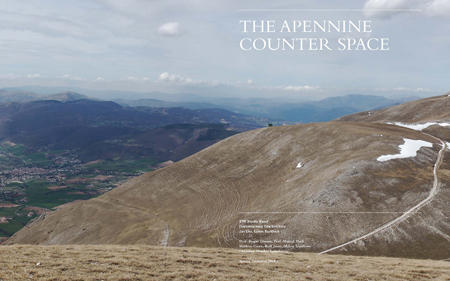The Apennine Counter Space - Urban processes in Apennine nature parks

Students: Lukas Burkhart, Jan Leu
Is Italy a thoroughly urbanized country, over the entire extent of its territory? Does the totality of Italian urbanization - going from the ancient cores, to diffuse urban landscapes, and to recreational resorts at the mountaintops and seafront - amount to what we presently call a city? This research would attempt to question this, by looking at the ‘counter space’ to the contemporary Italian urbanization, the Apennine mountain ranges. How are they related to the Italian urban systems? Do they need to be protected from the pressure of urbanization or are they even threatened by processes of shrinking and depopulation? Do they serve merely as ‘landscape parks’ for the strongly urbanized coastal regions or can they preserve their cultural and economic autonomy? Where are potentials for new development within the ‘counter space’ (agritourism, local produce, thermal bath wellness…) and how are they exploited today? In how far do the history and the mental, even mythical projections associated with mountain space still determine the fate of these regions? Wide areas within the Apennines are protected natural reserves or parks. Their uses include tourism (alpine tourism, skiing) and other recreational activities (weekend houses in rural villages, etc).

